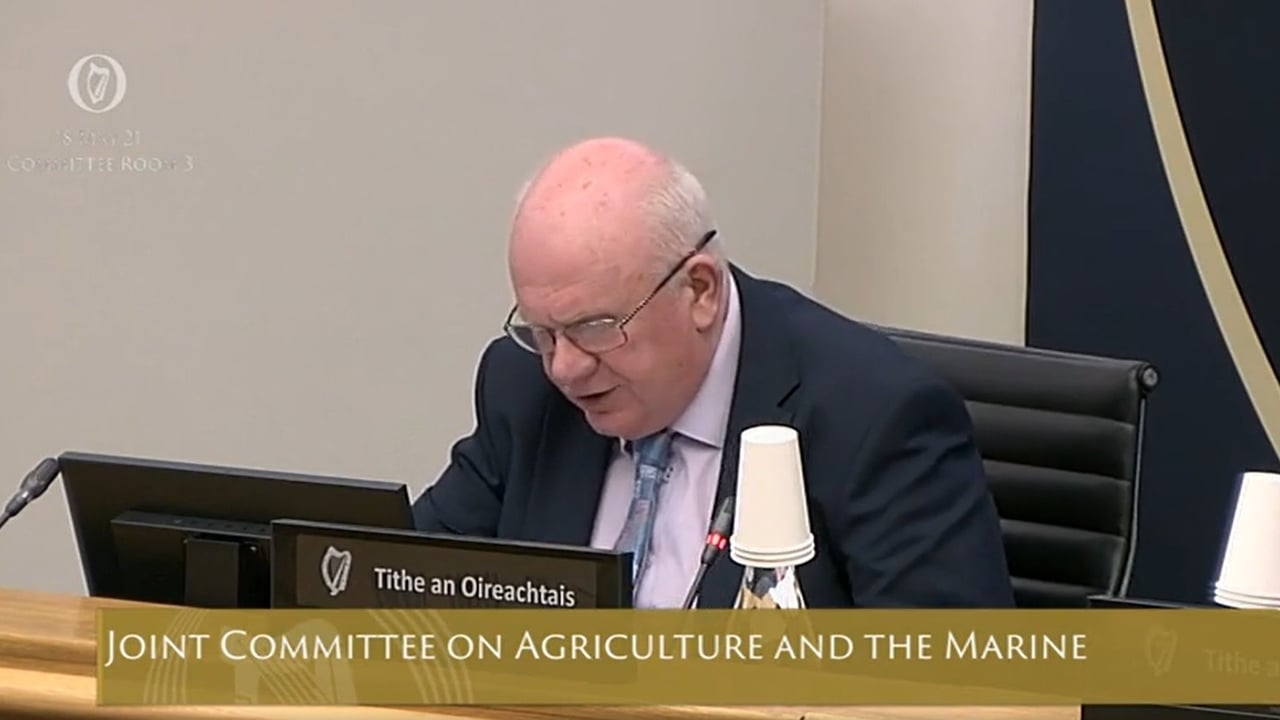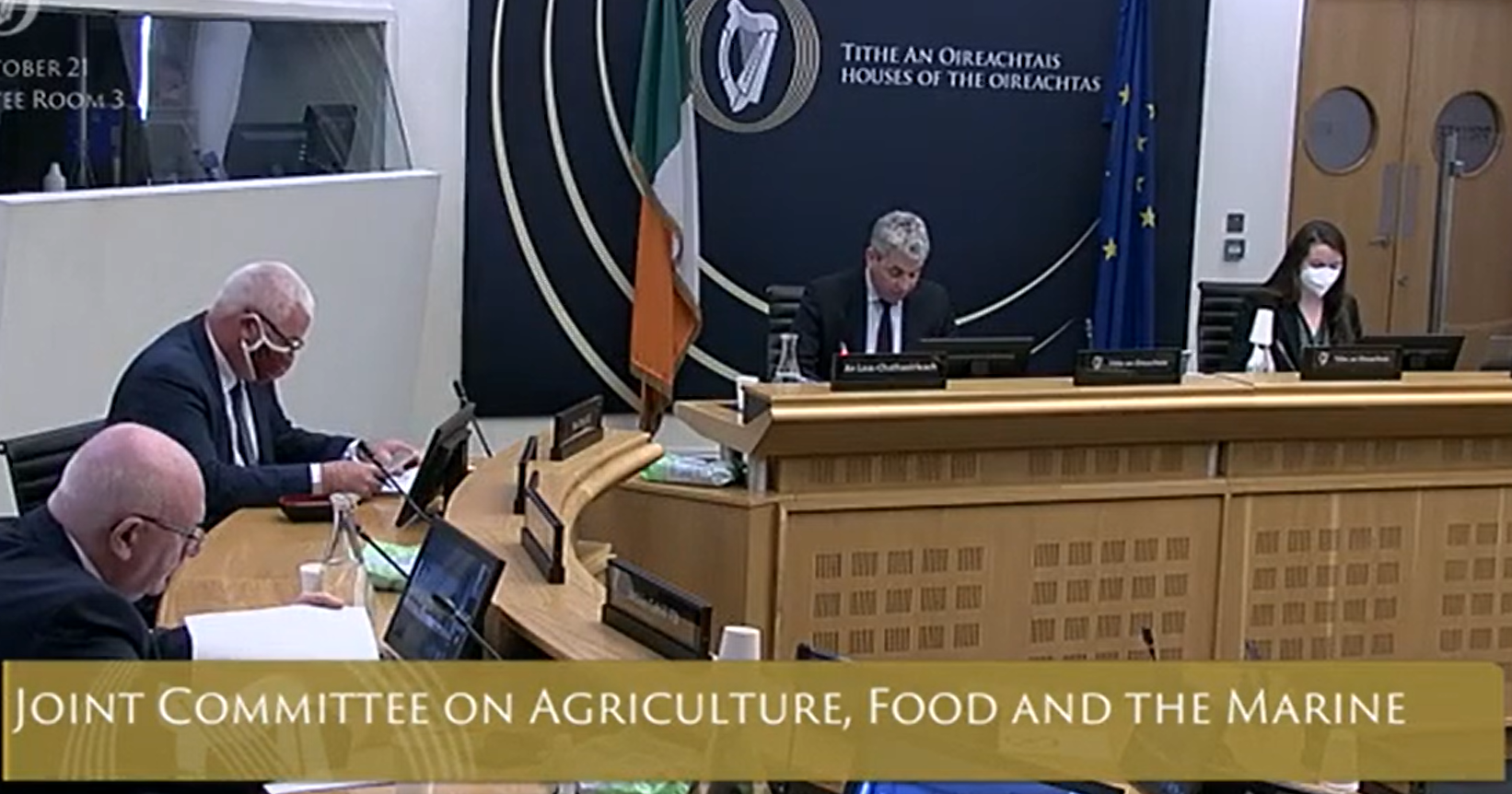Vet told to 'increase sale of drugs by 10%' - veterinary practice scrutiny continues
A vet was told that he had to increase the sale of drugs by 10% when the veterinary practice where he worked was acquired by a corporate entity.
At a recent meeting of the Joint Oireachtas Committee on Agriculture, Food and the Marine (JOCAFM) where detailed scrutiny of the Veterinary Practice (Amendment) Bill 2021 continued, chair Jackie Cahill told members that this particular vet had contacted and given him this information directly.
"His practice, where he worked, had been bought by a corporate, by lay people, and he was told that part of his remit for the following year was to increase the sale of drugs by 10%."
"So, we have people coming in whose aim is to increase the bottom line, they are not coming from a profession that takes an ethics oath when they qualify," he said.
During this meeting, the JOCAFM heard a submission from the Competition and Consumer Protection Commission (CCPC) through its spokesperson, Brian McHugh. It was in this context that Deputy Cahill made the comments above.
Mr. McHugh provided the CCPC's take on the proposed amendment to current veterinary practice ownership legislation, which would prevent non-registered veterinary professionals from owning veterinary practices in the country.
Generally speaking, the CCPC believes that corporate ownership of veterinary practices should not be prohibited.
He said that the CCPC is concerned that the proposed legislation would be "disproportionate and would lead to a restriction of competition in the market for veterinary services".
This, he said, would have "negative consequences for consumers including farmers and the wider agricultural sector".
He added that any restriction on veterinary practice ownership "should be justified on a clear, evidential basis of protecting the public from detriment, including harm to the animals under the care of veterinary practitioners".
Other CCPC concerns included:
- Proposed legislation could put Ireland at odds with European law;
- A ban on corporate ownership could be successfully challenged as being disproportionate - no similar restrictions exist in the areas of general practice or pharmacy in Ireland;
- There could be adverse implications - such as criminalisation - on existing corporate-owned practices, and their employees.
"It is the CCPC’s view that enhanced regulation could, instead, be employed to ensure that veterinary practices continue to provide a high standard of care irrespective of ownership structure," he said.
Deputy Cahill said that while he welcomed the CCPC's observations, he felt its "concerns about competition are unfounded".
He cited Germany as an example of a country that decided that its pharmacies could not be owned or operated by non-pharmacists.
"We can very easily co-relate that to this legislation as regards veterinary practice," he said.
He also added that in France, some non-veterinary-owned practices had been "delisted by authorities" that deemed their actions to be "not good".
Sinn Féin spokesperson, Deputy Matt Carthy, asked if the CCPC's concern was more about the competition aspect than the consumer aspect.
To this, Mr McHugh said the two were "intrinsically linked".
He said that the consumer suffers in the long run due to very stringent restrictions similar to those being proposed in the veterinary practice legislation.
"They suffer from a lack of competition, new entry, new innovation, through a worse service, or higher prices."
It is the role of the CCPC to be the voice of the consumer when situations such as this arise, he said.
To this Deputy Carthy responded:
"The consumer, in this instance, is the farmer, and there are a number of parts of the country that are not as well serviced by vets as other parts of the country. Could you point us to the recommendations that the CCPC has brought to government to address these deficiencies?"
Mr. McHugh referred to a 2008 CCPC report that recommended looking at the training of vets and the availability of third-level courses available in Ireland.
"What we have seen over the last 10-15 years is that the number of vets has increased, which I think is very welcome, and that has coincided with an increase in the number of corporates in the sector."
But Deputy Carthy said that during this time period referred to by Mr. McHugh, legislation had actually prevented corporate ownership of veterinary practices.
"This proposed legislation is essentially reverting to an interpretation of the existing legislation [by the Veterinary Council of Ireland] that was in place from 2005 to 2018," he said.
"So, much of the period of time you are talking about, those increases [in vet numbers] happened when the non-vet couldn't own a practice," he said.
Deputy Carthy clarified that 'corporate ownership' did not mean that veterinary practices owned by vets could not become 'incorporated' - the two are separate issues - and he also stated that it was his understanding that any law prohibiting non-veterinary ownership would not be retrospective.
This means that non-registered veterinary professionals who currently own a veterinary practice in Ireland would not face consequences.
He said the "free-for-all" model that the CCPC supports did not work in other countries and was "to the absolute detriment of the consumer".
"I wonder how you can say, as a consumer-protection authority, that a scenario that has been in place, that was working for the consumer, should be changed to a scenario that has been detrimental in other jurisdictions?" Deputy Carthy said.
But, sticking to his guns, Mr. McHugh said the CCPC had not seen evidence to suggest that there are issues with corporate ownership of veterinary practices in Ireland, or that it has harmed consumers in any way.
"Where there are issues, and there may well be, the regulator should look at those and come up with proportionate solutions."
But a dissatisfied Deputy Carthy said:
"One of the Cs in your title should be changed to 'corporate protection' because it appears to me that the CCPC always goes to great lengths to protect multinational corporations at the behest of vested interests and to the potential detriment of the people you should be protecting.
"These people are the consumers and farmers in rural communities who, if we are to take international evidence, could be the ones who lose significantly as a result of this."






